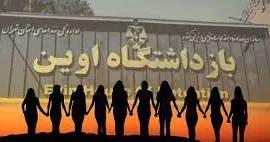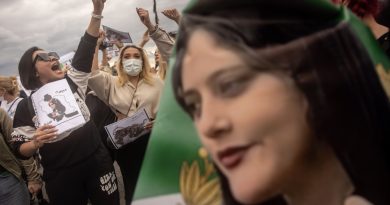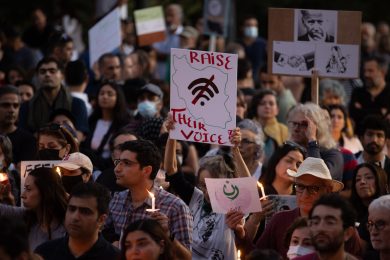The Islamic Revolutionary Guard Corps (IRGC) has long been identified as a destabilizing force in the Middle East and a significant threat to global security. Through its funding of terrorism, its role in regional conflicts, and its suppression of dissent within Iran, the IRGC undermines peace and human rights. As the backbone of Iran’s military and economic strategy, the IRGC relies on extensive networks of financial and logistical support to maintain its operations. Targeted sanctions have emerged as a critical tool for weakening the IRGC’s influence, disrupting its operations, and holding it accountable on a global scale. This analysis explores how sanctions work against the IRGC, their effectiveness, and the challenges and opportunities they present.
Understanding the IRGC’s Role in Global Destabilization
The IRGC operates as more than just a military force. It is a vast organization that encompasses economic, political, and ideological dimensions. Its primary functions include:
1. Supporting Terrorist Organizations: The IRGC provides funding, training, and weapons to proxy groups like Hezbollah, Hamas, and the Houthis, fueling conflicts across the Middle East.
2. Arms Proliferation: Through the Quds Force, the IRGC exports advanced weaponry, including missiles and drones, to destabilize regions and empower its proxies.
3. Economic Control: The IRGC dominates significant sectors of Iran’s economy, including construction, energy, and telecommunications, using these resources to finance its activities.
4. Domestic Repression: Within Iran, the IRGC suppresses dissent, silences opposition, and enforces the regime’s authoritarian rule.
These activities make the IRGC a threat not only to regional stability but also to global security, requiring a coordinated international response.
The Role of Sanctions in Weakening the IRGC
Sanctions are a non-military tool used by governments to target entities or individuals engaged in activities that threaten international norms or security. Against the IRGC, sanctions can be highly effective in achieving the following goals:
1. Disrupting Financial Networks
The IRGC’s extensive financial network is critical to funding its operations. Sanctions targeting IRGC-linked entities, businesses, and individuals disrupt these networks, cutting off access to global financial systems. By freezing assets and banning transactions, sanctions can:
• Reduce funding for IRGC proxies like Hezbollah and Hamas.
• Impair the IRGC’s ability to procure weapons and technology.
• Deter international businesses from engaging with IRGC-controlled companies.
For example, U.S. sanctions under the Countering America’s Adversaries Through Sanctions Act (CAATSA) have targeted IRGC-affiliated banks, companies, and individuals, significantly limiting their financial activities.
2. Restricting Access to Global Markets
The IRGC’s control over key sectors of Iran’s economy gives it substantial revenue streams. Sanctions that target these industries—such as oil, construction, and shipping—reduce the IRGC’s ability to generate income. For instance:
• Oil Sanctions: Iran’s oil exports are a major source of revenue for the IRGC. Sanctions on Iran’s energy sector, coupled with enforcement measures to deter buyers, have significantly reduced these revenues.
• Shipping Sanctions: Targeting shipping companies linked to the IRGC limits their ability to smuggle arms and evade financial restrictions.
3. Undermining Proxy Operations
The IRGC’s regional influence relies heavily on its proxy groups. Sanctions targeting the IRGC’s supply chains, arms transfers, and logistical support to these groups weaken their operational capacity. For example:
• Sanctions on Hezbollah’s financial networks have disrupted its funding and increased the costs of its operations.
• Restrictions on arms sales to the Houthis in Yemen have reduced their ability to wage war.
4. Enhancing International Pressure
Sanctions are a tool of diplomacy as much as they are an economic weapon. A coordinated international sanctions regime can isolate the IRGC, increasing pressure on Iran’s regime to curtail its activities. This pressure can also:
• Strengthen diplomatic leverage in negotiations over Iran’s nuclear program and regional behavior.
• Signal global disapproval of Iran’s destabilizing actions, reducing the IRGC’s ability to operate with impunity.
Case Studies: Successes and Limitations
Successes
1. 2010-2015 Sanctions on Iran:
During this period, comprehensive international sanctions, including financial and oil-related measures, significantly reduced Iran’s revenue and forced the regime to negotiate the Joint Comprehensive Plan of Action (JCPOA). These sanctions demonstrated the IRGC’s vulnerability to coordinated international pressure.
2. Targeting Hezbollah:
Sanctions against Hezbollah’s financial networks, supported by the IRGC, have disrupted its funding and reduced its operational reach, showcasing the effectiveness of targeting proxies.
Limitations
1. Sanctions Evasion:
The IRGC has developed sophisticated methods to circumvent sanctions, including the use of front companies, illicit smuggling networks, and cryptocurrency.
2. Lack of Global Consensus:
While countries like the U.S. and EU have imposed strict sanctions, others, including China and Russia, continue to engage with Iran, weakening the impact of sanctions.
3. Humanitarian Impact:
Broad sanctions on Iran’s economy can harm ordinary citizens, fueling anti-Western sentiment and strengthening the IRGC’s domestic narrative.
Challenges and Opportunities
Challenges
1. Adapting to Evasion Tactics:
The IRGC’s ability to bypass sanctions requires constant monitoring and updates to sanctions regimes.
2. Maintaining Global Unity:
Diverging interests among major powers can undermine the effectiveness of sanctions. Ensuring multilateral cooperation is critical.
3. Balancing Humanitarian Concerns:
Sanctions should be carefully designed to minimize harm to civilians while targeting the IRGC’s leadership and networks.
Opportunities
1. Enhanced Intelligence Sharing:
Greater collaboration among nations to track and dismantle IRGC-linked financial and operational networks can enhance sanctions enforcement.
2. Supporting Regional Allies:
Strengthening the capabilities of countries affected by the IRGC, such as Iraq, Lebanon, and Yemen, can reduce the group’s influence.
3. Increased Public Awareness:
Campaigns to expose the IRGC’s activities and their impact can build global support for sanctions and pressure governments to act.
Recommendations for Maximizing Impact
To effectively weaken the IRGC through sanctions, the following steps are crucial:
1. Targeted Sanctions: Focus on individuals, businesses, and entities directly linked to the IRGC to minimize collateral damage.
2. Multilateral Cooperation: Build a unified international sanctions regime to close loopholes and increase pressure on the IRGC.
3. Combating Evasion: Invest in technology and intelligence to identify and disrupt the IRGC’s sanctions evasion tactics.
4. Sanctions Enforcement: Strengthen enforcement mechanisms to ensure compliance and penalize violators.
5. Support for Human Rights: Pair sanctions with support for civil society and human rights organizations in Iran to counter the IRGC’s domestic repression.
Conclusion
Sanctions are a powerful tool for holding the IRGC accountable and disrupting its operations. By targeting its financial networks, proxies, and international legitimacy, sanctions can significantly weaken the IRGC’s ability to destabilize regions and violate human rights. However, their success depends on consistent enforcement, global cooperation, and a commitment to mitigating humanitarian impacts. Through coordinated efforts, the international community can challenge the IRGC’s influence and promote stability and security worldwide.
Join Our Newsletter!
Stay informed with the latest updates, news, and ways to take action in the fight for justice and global security. Sign up now to get updates delivered straight to your inbox!





